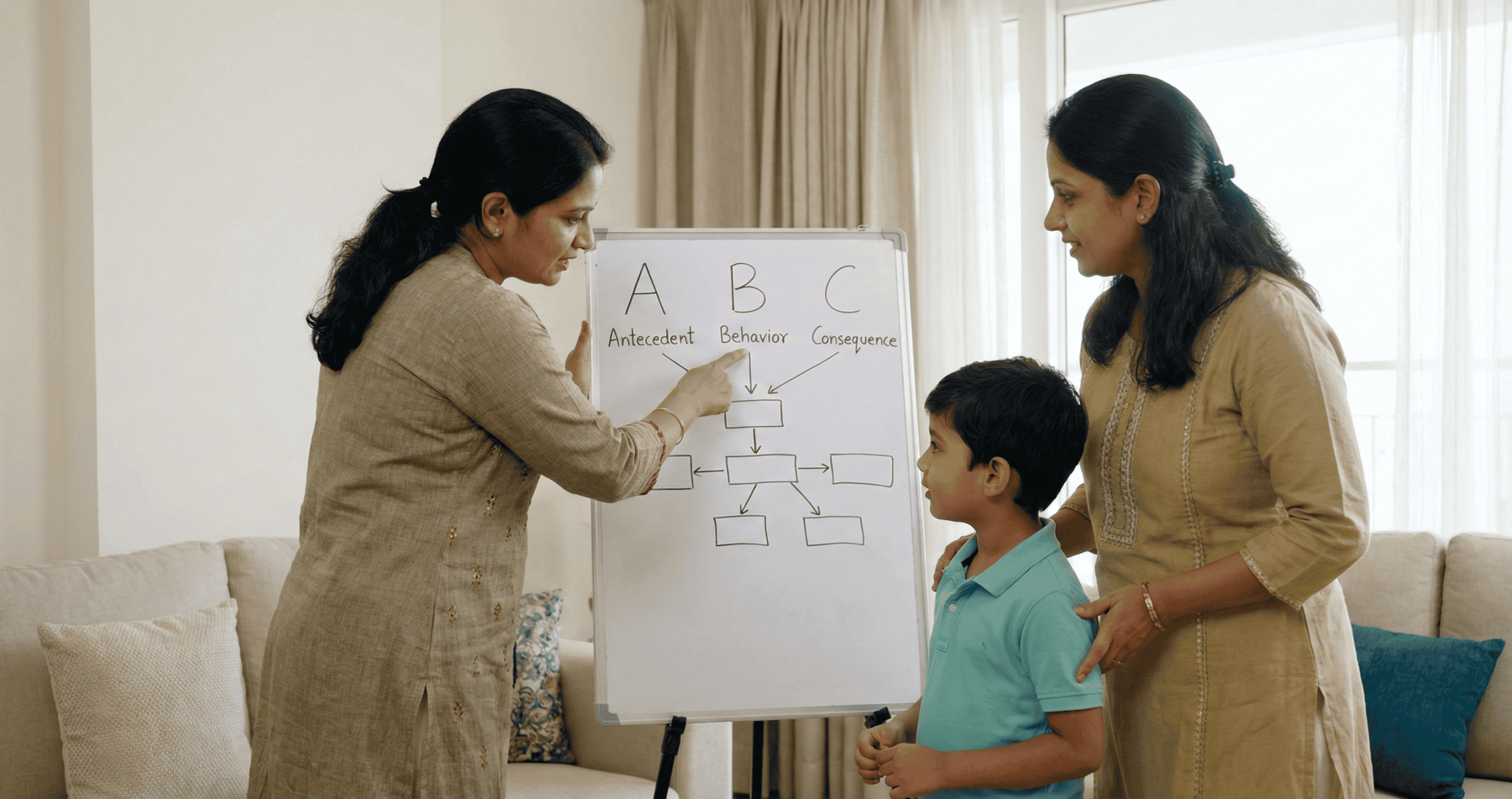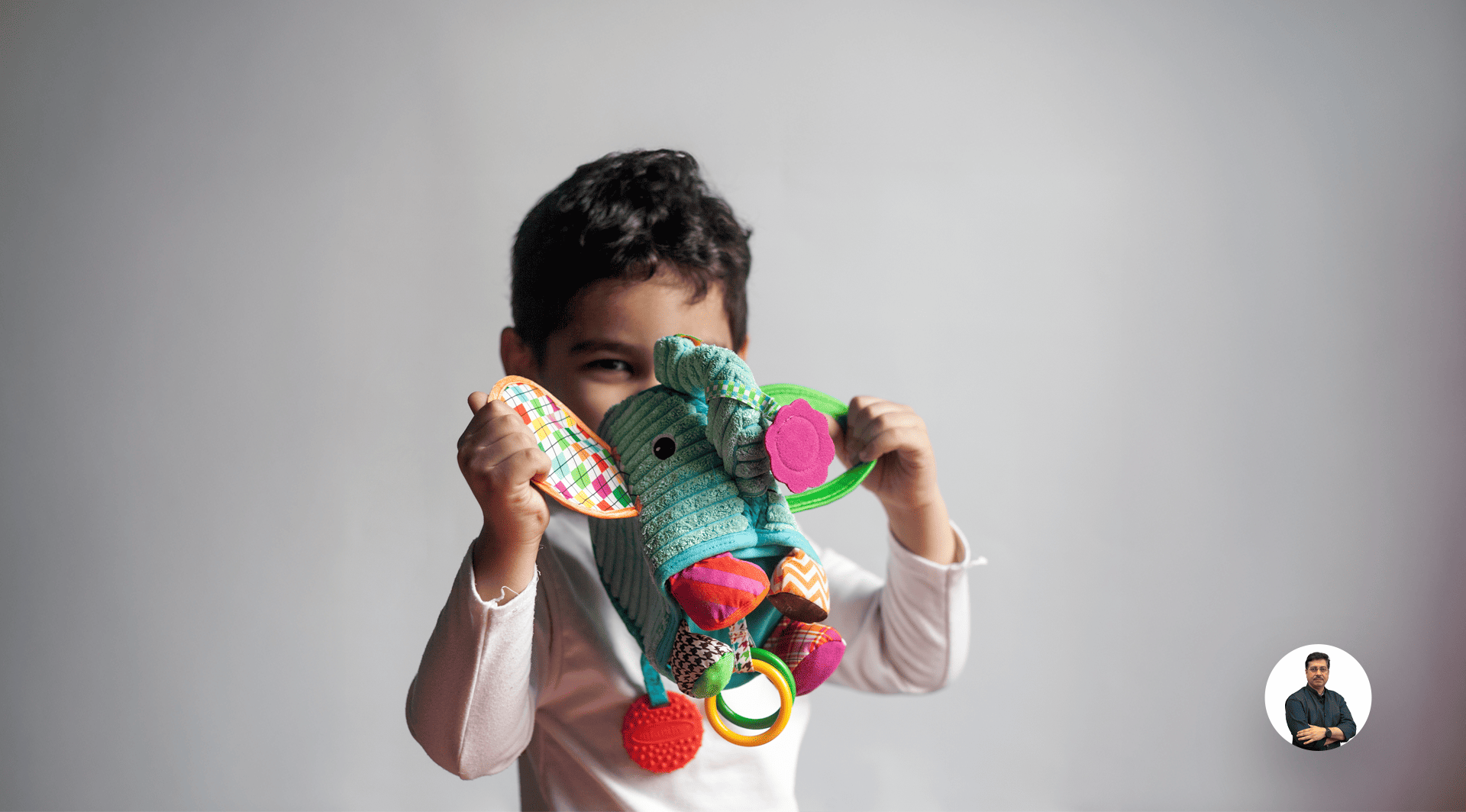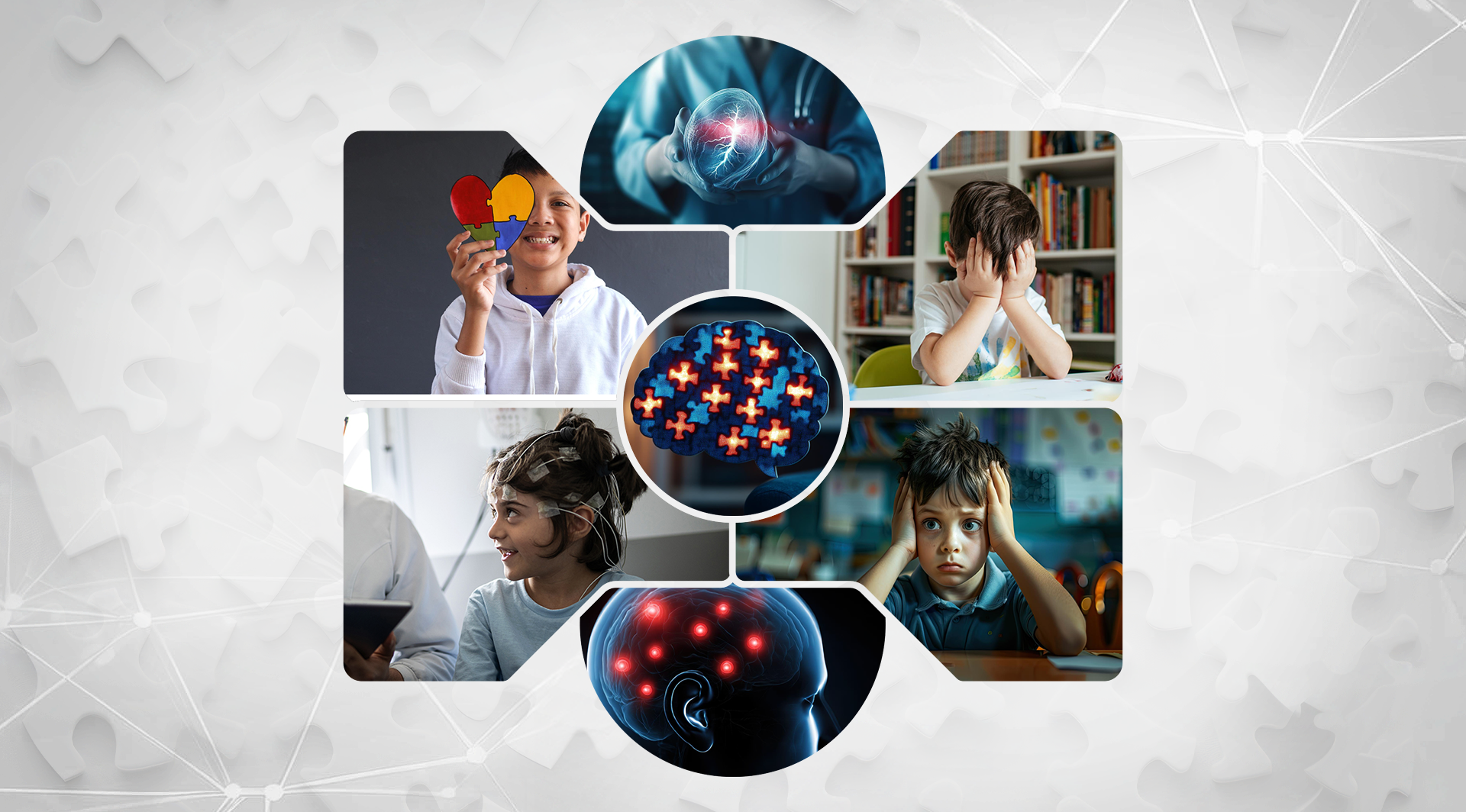Category: Uncategorized
-

Leucovorin and Autism: A Clear, Evidence-Based Guide for Parents
Parents searching online for leucovorin, folate deficiency, or the FRAT test in autism often encounter confusing or conflicting information. This article is written to clearly explain the medical reasoning, outline who leucovorin may help, and just as importantly, who it may not help. This is not medical advice. It is educational information based on published research. Any treatment decision should always be…
-

छोटे छोटे माइलस्टोन मनाइए: अपने बच्चे की ऑटिज़्म यात्रा में हिम्मत कैसे बनाए रखें
ऑटिज़्म (ASD) में बच्चे की प्रगति अक्सर धीरे और छोटे-छोटे कदमों में होती है। सिर्फ बड़े milestones पर ध्यान देने से parents जल्दी थक जाते हैं और निराश हो जाते हैं। इसलिए छोटे wins को पहचानना और celebrate करना जरूरी है, जैसे थोड़ी देर eye contact करना, किसी action को copy करना, नया sound निकालना,…
-

Understanding the ABC Model in Behaviour Therapy for Autism
The ABC (Antecedent–Behaviour–Consequence) model is a structured, evidence-based framework used to understand why behaviours occur and how to respond more effectively. This article explains how parents and professionals can apply the ABC model in daily life to observe patterns, reduce challenging behaviours, and support children with Autism in a consistent, realistic way.
-

Celebrating Small Milestones: Staying Encouraged on Your Child’s Autism Journey
Understanding the Emotional Journey Parenting a child with Autism Spectrum Disorder (ASD) is a deeply personal and evolving experience. It comes with moments of joy, hope, patience, and at times, fatigue and uncertainty. Managing therapies, routines, and expectations can be emotionally demanding. In this process, many parents focus mainly on “big outcomes,” such as when…
-

Fixation or Repetitive Behaviour in Autism
Understanding Fixation and Repetition Children with Autism often show repetitive or fixed behaviors such as spinning objects, watching wheels rotate, clapping hands repeatedly, or holding the same item for long periods. These behaviors are called stereotypical behaviors or self-stimulatory behaviors, commonly referred to as stimming. Such actions may seem unusual to others but for the…
-

Importance of Integrated Therapy in Autism
Understanding the Need for Integration Autism Spectrum Disorder (ASD) is a neurodevelopmental condition that affects communication, social interaction, sensory processing, and behavior regulation. Since these developmental areas are interlinked, focusing on one aspect of therapy in isolation often results in limited improvement. For example, a child may develop speech but still struggle to use it…
-

Managing Hyperactivity at Home: Practical Strategies for Parents
Hyperactivity in children is often marked by restlessness, constant movement, difficulty focusing, and impulsive behavior. While some level of high energy is natural in kids, persistent hyperactivity can create challenges in learning, daily routines, and family life. The good news is that with consistent strategies at home, parents can help children channel their energy in…
-

How Can We Support Socialization for Children at Home?
Socialization plays a crucial role in a child’s growth, shaping their ability to communicate, build relationships, and adjust to different environments. While schools are often the primary setting for developing social skills, parents can still play an active role in encouraging meaningful social interactions at home and in everyday life. Why Socialization Matters For children,…
-

More Than Just Hand-Flapping: The Importance of Stimming for Children with Autism Spectrum Disorder
Stimming-repetitive movements or sounds like hand-flapping or rocking-is often misunderstood in children with autism. In reality, it’s a natural way to self-regulate, process emotions, and stay focused. Instead of stopping stimming, we must understand and accept it as an essential tool that helps children navigate their world.
-

Co-occurring Conditions: Understanding the Link Between Autism, Anxiety, ADHD, and Epilepsy
Autism and co-occurring conditions go hand in hand more often than we realize. Anxiety, ADHD, and epilepsy can impact how a child communicates, learns, and experiences the world. Awareness is the first step to creating the supportive environment they deserve.